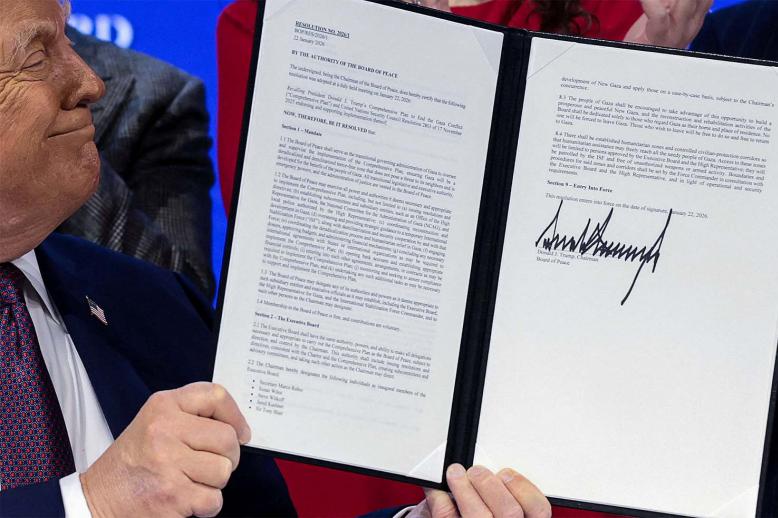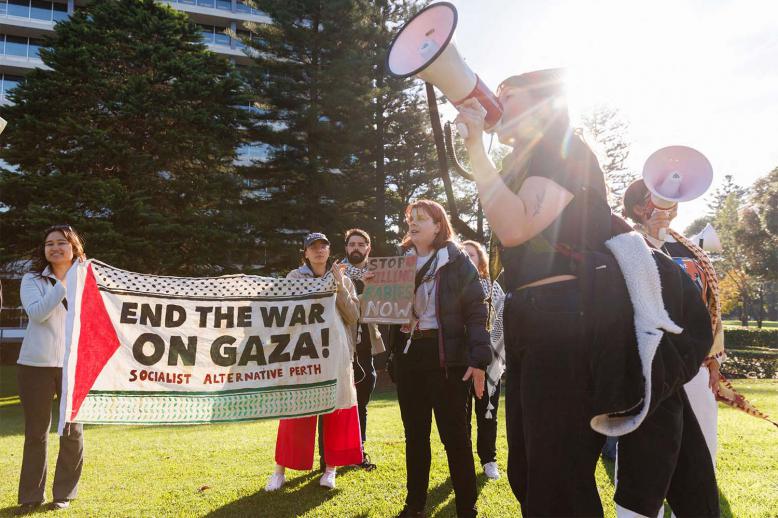What is Kadhimi’s real plight?
The prominent Shiite blocks in the Iraqi parliament have finally decided to back candidate Mustafa al-Kadhimi, chief of the Intelligence Service, to be the new Prime Minister.
Directly, many Kurdish and Sunni parties declared their support to him and asserted that they would positively interact with his government in this critical period through which Iraq is going.
This side argues that Kadhimi will not be able to fulfill what Iraqi people expect unless political parties change their way of dealing with the political system. If they remain divided on the fateful matters, neither al-Kadhimi nor anyone else would have the opportunity to save this country from its gloomy future.
Great hopes hanging over Kadhimi’s government must be rational. Political parties still put tremendous pressure on him to take their interests into account when it comes to the quota system in which they have took part in founding. Publically, they say that they have given him the freedom to choose his cabinet. However, many media sources confirm the opposite and say that he, at the last minute, might seriously think of leaving this mission.
The negotiations of creating the new government have revealed that few leaders control the whole process. They decide who must be the new prime minister, and they are also responsible for setting the norms of choosing the ministers. This approach can lead to only one result: "the failed state".
In this case, they are attempting to turn Kadhimi into just an employee in their institutions. Iraqis no longer accept this equation. Instead, they want to see a real statesman who can rebuild their nation strongly.
Civilized states need strong leaders who can solve problems and manage crises creatively. These leaders are produced by political parties for revitalising the state's function and consolidating its position in the international arena.
In Iraq, such a model has faced many setbacks since 2003, as partisan forces, for many reasons, fear from such sort of rulers, and thus they have entered the Iraqi state into a dark tunnel. This scene might also happen with the Kadhimi’s government.
Recently, Kadhimi said that his government will depend on actions rather than words. As it seems, he is determined to address the basic challenges facing Iraq in many different sectors.
This means that he will have to contain all kinds of corruption threatening society and the state. He will be in a real dilemma if political parties choose to challenge him in this regard.
It is widely believed that they will not permit him to apply his governmental program to interact with the crucial matters in this country. Hence, sooner or later, he will admit that these parties want the Iraqi nation to be without actual leadership.
Kadhimi is confronting the possibility of collapsing the state. There are presently many hurdles looming: oil prices are declining, the coronavirus has been not defeated, the possibility of direct conflict between the US troops and the Popular Mobilization Forces (PMFs) is still high, not to mention that the demands of the protest movement have not met yet.
To tackle all these points, Kadhimi's government will need a real national consensus in the Iraqi scene to give him the sources of success and strength he requires in this direction.
But unfortunately, there are many doubts that political parties will understand such necessary conditions to make Kadhimi as a real saviour of the Iraqi state.
Till now, there is no real evidence that political parties are prominently interested in the fate of Kadhimi's cabinet. Every side is negotiating for the sake of their interests, every party describes itself as the legal representative to one of the population groups, and every party has its special geopolitical dogma. This leads to creating conflicted projects through which all these forces intersect with the concept of the state.
At present, there is serious talk about the nature of disputes between Kadhimi and the others, especially the PMFs, concerning the security ministries.
Paramilitary groups want to impose their word on the security scene and prevent Kadhimi from managing such dangerous institutions. This means that suspicions between them have increased and trust might collapse earlier than many writers anticipated.
Meanwhile, Kadhimi is trying to keep his firm grip on the intelligence service. All of this tells us how the relations between them will develop in the next months.
Kadhimi is being demanded to find a solution to the American presence in Iraq. PMFs want him to apply the decision taken by parliament which called for the American withdrawal from Iraq.
In case he refuses to respond to their order, they will accuse him of being an American agent. In return, the US is looking forward to his role in securing its embassy and its military bases from the missile attacks, launched by these groups. He would face a sharp American reaction if he could not do so. Therefore, we can maintain that he is facing a hard position between these opposing forces.
Kadhimi will not be allowed to break the mechanism of sharing the ministries among the big parties. There are six ministries classified as sovereign, including the ministries of the Interior, Defense, Foreign Affairs, Oil, Finance, and Planning.
Political parties distribute these ministries in this way: 3 ministries to the Shiites, 2 ministries to the Sunnis, and only one ministry to the Kurds. Iraqi society has begun to express its refusal to this formula that has turned such establishments into business centers serving the parties controlling them. Accordingly, people now do not regard these ministries as institutions belonging to the state but pure partisan possessions.
To sum it up, Iraqi political experience has proved that we need a new generation to lead the state. Traditional parties have lost their ability to manage the change people are dreaming about.
These political forces are obliged to change their policies and to work with others to find a way out of this impasse. This is what Iraqi people want from them. Otherwise, they will be responsible for failing Kadhimi's government that is now being restricted by many political commitments that will restrain the effectiveness of its action in the upcoming period.
Diyari Salih is an Iraqi academic with a Ph.D. in Political Geography from the University of Baghdad and a Post-Doctorate in International Relations from the University of Warsaw. His research focuses on geopolitical issues in Iraq. He tweets at @DiyariFaily







